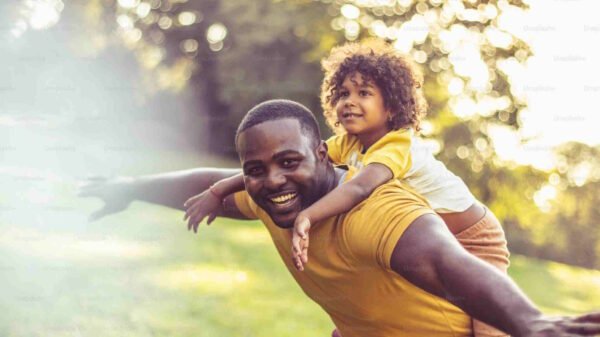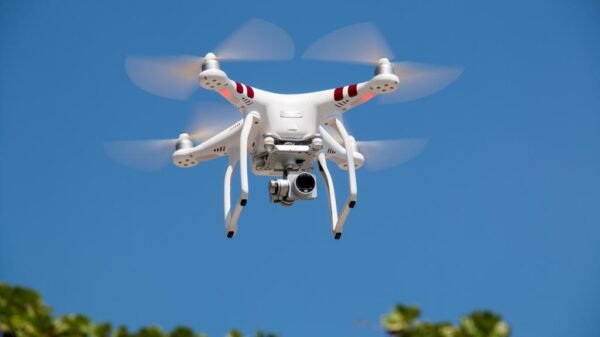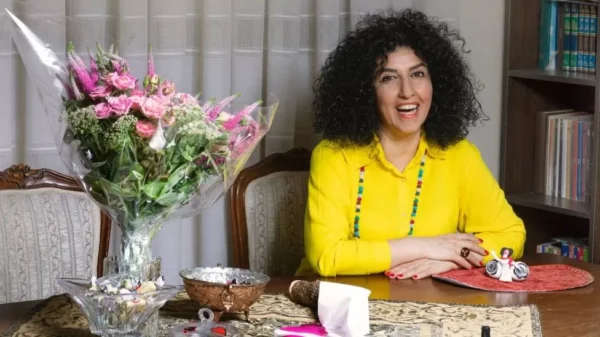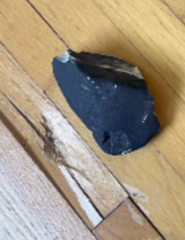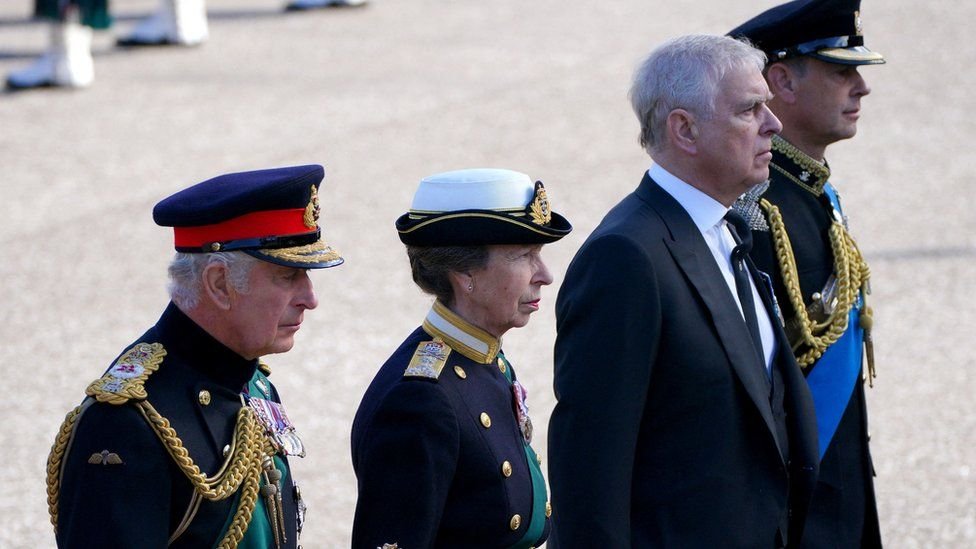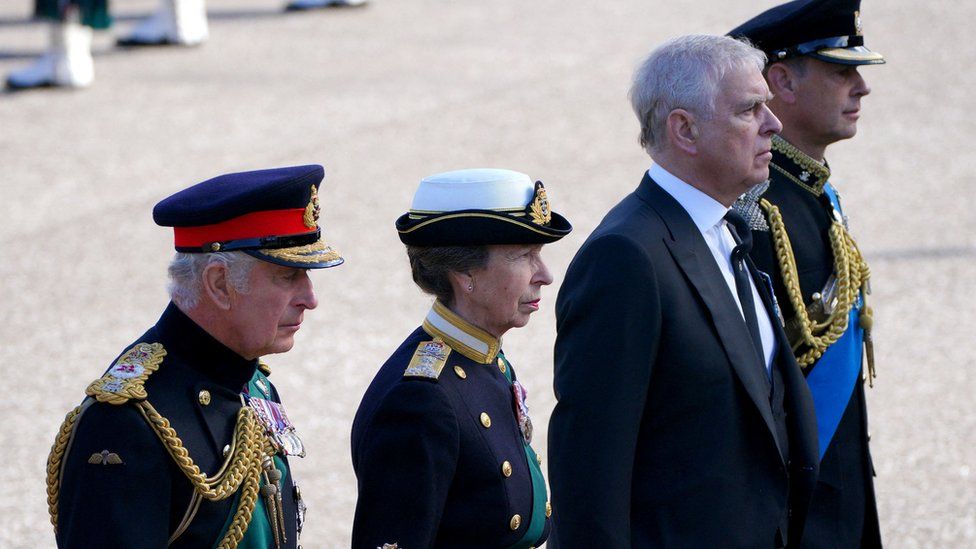
Queen Elizabeth II’s four children were seen in public together for the first time since her death in Balmoral.
King Charles, the Princess Royal, Prince Andrew and Prince Edward were walking behind the Queen’s hearse as it made its way towards St Giles’ Cathedral in Edinburgh.
It was a poignant sight. Children following the coffin of their mother. It doesn’t matter how old the children are, at that moment they become children again.
And they looked a little stiffer and slower, carefully keeping in step with each other, flanked by cameras and ceremonial guards.
They looked solemn as they climbed up the Royal Mile. In the space of the past 18 months they’ve lost both their parents. There’s a loneliness that comes with that even with the world’s press watching.
There was a quiet dignity too. Princess Anne has faithfully accompanied her mother’s coffin since it left the privacy of Balmoral and the 72-year-old was walking behind it for this stretch too dressed in her Royal Navy ceremonial uniform. She’ll stay with it until the Queen lies in state in Westminster Hall.
Funerals, like weddings, put people back into a family setting. But these royal siblings have had their roles fundamentally changed in the last few days.
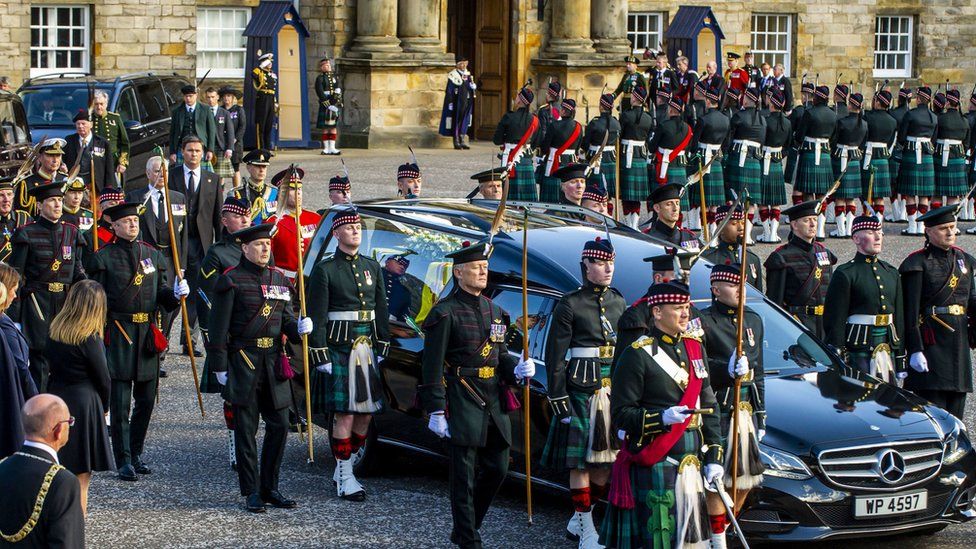
King Charles has begun a new life as his mother’s has ended. He’s taken on one of the highest-profile jobs in the world at the age of 73.
He is now the centre of attention, commander-in-chief as well as chief mourner, and walked holding out a field marshal’s baton in his hand.
The Queen’s insignia was still stitched on his uniform, where soon his own letters will replace hers.
Alongside his own private grief he’s had an intense timetable of meetings, public and private, travelling to talk to politicians and planners, interspersing his new duties as King with his role in the progress of the funeral.
He has been pushed into the limelight when most people would want to hide away.
The hereditary principle means that as Charles and his heirs move to centre-stage, others in the family are inexorably eased to the edges, no longer the children of the monarch. Distant branches on the royal tree.
Prince Andrew, 62, was marching uphill too. He had his medals, but as he’s no longer a working royal he wasn’t wearing a military uniform, unlike his brothers and sister.
He was staring straight ahead, perhaps thinking how much his life has changed too.
They walked along Edinburgh streets that are usually noisy with tourists. Today there were even bigger crowds, but with a sense of quiet and curiosity.
There was the sound of horses’ hooves on the cobbles and a sea of mobile phones held up by people recording a few moments of history going past them.
Then with more ceremony and salutes, the coffin and the Queen’s children entered the cathedral for a service with hymns, music and prayers.
https://emp.bbc.com/emp/SMPj/2.45.0/iframe.htmlMedia caption,
The traditional Vigil of the Princes has taken place in St Giles’ Cathedral, Edinburgh
Later on Monday evening the four children gathered together again in silent vigil facing outwards from the mother’s coffin in the cathedral for the Vigil of the Princes – a long-standing tradition last performed during the Queen Mother’s funeral. In their private grief they bowed their heads as members of the public continued to file past to pay their respects.
The coffin had travelled with flowers on top, including from the Queen’s estate in Balmoral. A crown was added for the first time, the grandeur stepping up at each part of the journey, which will culminate next week in a state funeral.
The church is named after Saint Giles and maybe the royal siblings might have envied his lifestyle. He was a hermit who lived in the woods where no one could find him.
Source: bbc.com











